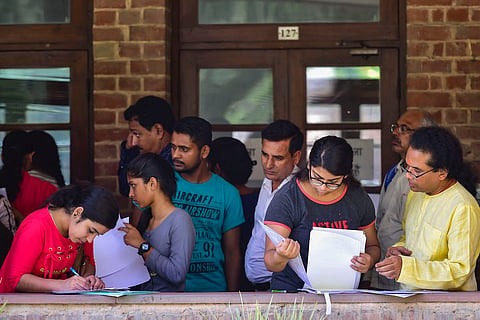

The Karnataka government on August 7 issued an order for all undergraduate (UG) colleges in the state to implement the National Education Policy-2020 from the 2021-22 academic year. This will make Karnataka the first state in India to implement the policy, Dr CN Ashwatha Narayana, Minister of Higher Education, said. Earlier, on July 31, state Primary and Secondary Education Minister Suresh Kumar said that the NEP would be implemented from August after merging a draft state policy with it.
The NEP aims to drastically change the way undergraduate courses function, including changing three-year courses to four years and doing away with the three-major system that is prevalent in colleges in Karnataka. The merits and demerits of the document are being debated within academic circles; however, institutions across the state agree that they are not ready to implement the NEP at such a short notice.
The implementation of the NEP — which includes introducing Kannada as a compulsory language and clubbing all others as electives, changing the three-year triple major system to a four-year course with focus on one major and one minor discipline, and allowing multiple entry and exit points for students, among others — involves a major reshuffling of resources. However, the changes need to be well thought-out and not implemented suddenly.
“It (NEP) is a great initiative of the Union government. But it is too sudden. The ground reality also has to be taken into consideration,” Maya Harve, Head of Department, English, at Jyoti Nivas College said. The college is seeking more time as changes have to be made at the grassroot level before bringing in first-year students, she added. Mount Carmel College, another autonomous institution in Bengaluru, said that they will reschedule classes for first-year students as they redesign their syllabus as well.
“The colleges are not prepared, implementation will be chaotic. As teachers, we ourselves don't know what the NEP means. We don't know how it will be communicated to the students. Everything is done so hurriedly,” a government college professor, who did not wish to be named, said.
“Colleges will also be stuck with running two systems at the same time, because there are second and third-year students studying with the old system and they have to run the first-year with this new system. There will be massive confusion on campuses, which are already strained at the moment,” a lecturer at an autonomous college in Bengaluru explained. Implementing the NEP will be particularly difficult now, as colleges are still reeling from the impact of the pandemic. “What is the need for this hurry? When colleges are barely able to resume after a pandemic, why force so much on their plate,” he questioned. He argued that the impact of the policy, budgeting and practicality must be made transparent before it is implemented anywhere.
While the NEP includes provisions that aim to elevate the education system and make it more student-friendly, its critics have accused it of not being transparent, and ignoring minority students. In August 2020, then Puducherry Chief Minister V Narayanaswamy called it “vague and confusing”.
Watch this recording of a discussion on the NEP and its criticisms, conducted by St Joseph’s College, Bengaluru: